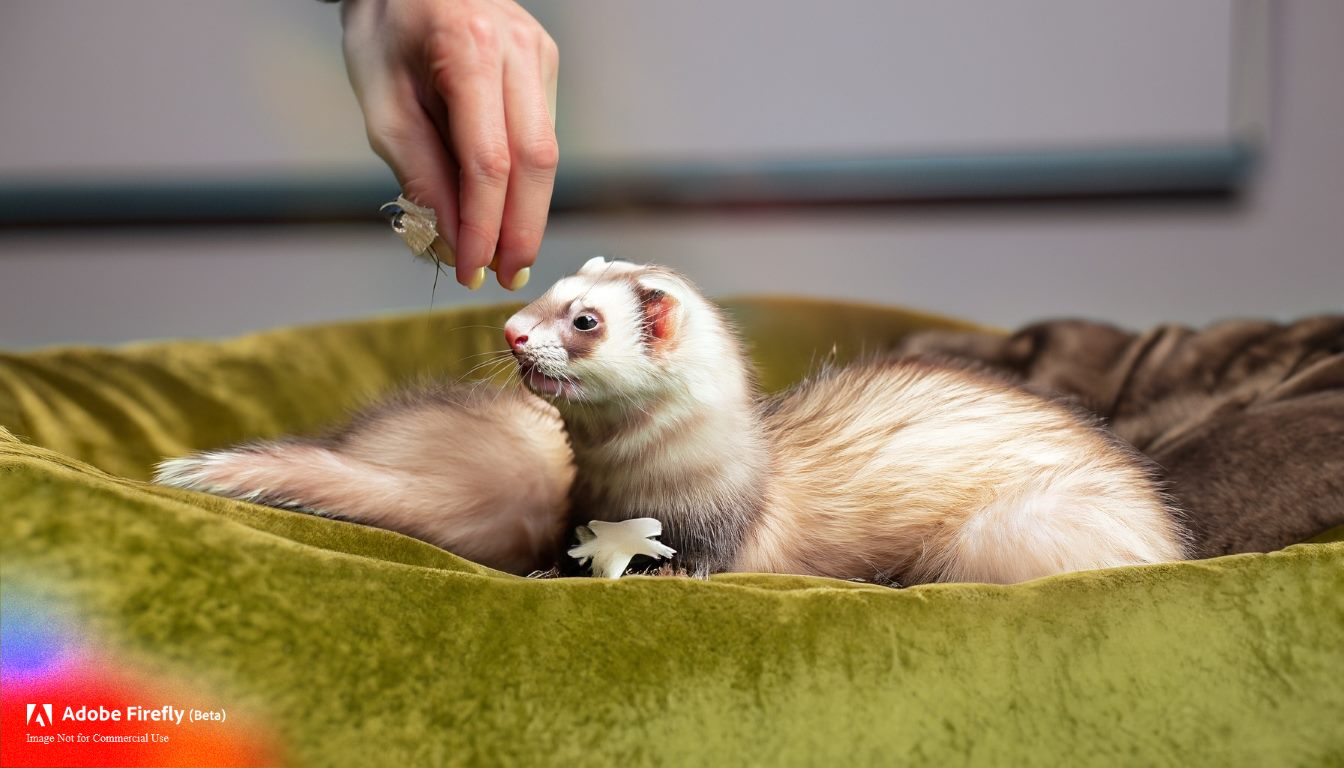
Ferrets are feisty critters, no doubt about that. For the most part, that feistiness is what makes them such fun pets. However, at times it can get out of grip. Fortunately there are several ways to cut down on ferret aggression.
First of all, if you are adopting or buying a ferret, keep in mind that ferrets have personalities just like anyone else. If you would like a ferret, consider whether you would prefer an active or a quieter animal and choose accordingly.
If you already have a ferret and it is more aggressive than you’d like, the most important first step is to determine what is making your ferret feisty to begin with. They become aggressive for many of the same reasons that humans do – fear, frustration, hunger etc. Try to figure out the cause and you’re halfway to solving the problem. For example, keep the food and water dish full to ensure His Feistiness isn’t merely hungry or thirsty. Keep your cats and dogs out of the ferret room if your fuzzies are not used to other pets yet.
It could be that your ferret has not been trained against biting and nipping. All you have to do is grab it by the scruff of the neck and firmly yell “No!” Your fuzzy should get the hint after a few tries. You may also give it a brisk shake for a split second. Never hit or beat a ferret or any other animal.

If your ferret is still a kitten and is acting violently, you may use the same “time out” strategy that parents have used for years on their children. Allow your kit to calm down by leaving it alone in a pet carrier for a few minutes. You can take your ferret out again after a few minutes – you only want to redirect its behavior, not put it to sleep. (If you don’t have a pet carrier, you may want to just put your ferret in a different part of the cage or introduce a different activity.)
Remember the proverb “idle hands are the devil’s workshop”? It’s possible that your ferret is just bored or lonely. In that scenario, you are the finest defence against aggressiveness. Take your ferret out of the cage and, depending on the occasion, play or snuggle with it. You may sometimes calm a ferret down by caressing its fur. At other times, keep in mind that “if you can’t beat ’em, join ’em.” Wrestle a little with your ferret, but stop if it tries to bite.
Perhaps you can provide a toy specifically for your ferret to gnaw on when the mood strikes. It’s better to have a pet toy gnawed to death than your sofa or your clothing. You can use pet toys, old clothing or whatever you and your pet prefer. Be sure to not use items that could come apart and choke your ferret or become caught in its claws (i.e., foam, cardboard, wood chips etc.)
Another way to distract your feisty ferret is to take it for a walk. On the other hand you may want to let your aggressive fuzzy to run like mad around the house. A change of scenery does everyone some good. Whether outdoors on a leash or indoors freely, a good scamper relieves stress and redirects a ferret’s attention off of whatever is troubling it.
We all have our moods and it is quite possible that instead of being lonely, your ferret has the opposite problem. Your ferret may just be having a Greta Garbo moment and “wants to be alone”. If that’s the case, let it be. It’ll come out of its hiding spot when it’s good and ready.
In extreme cases, ferret aggression could be a sign of abuse. If your ferret was adopted, consult the adoption agency to find out your ferret’s history if possible. Always consult with your veterinarian to make sure there are no signs of neglect or injury. The vet may also discover an underlying illness that may have agitated your pet.
If you have a jill that has not been neutered, consider whether she could be pregnant. The mother instinct is strong and she can simply be trying to protect herself and her kids.
If you’ve tried or ruled out each of these measures, you may simply have to shrug your shoulders and let your ferret be. All animals have their traits and your ferret is no different. Ferrets love to dig, to nip, to bite, to steal and hide things and to mark their territories. These may not be the preferred behaviors but there is often little that owners can do to change them. In those cases, it’s a matter of grinning and bearing it — and loving their ferrets for who they are.






